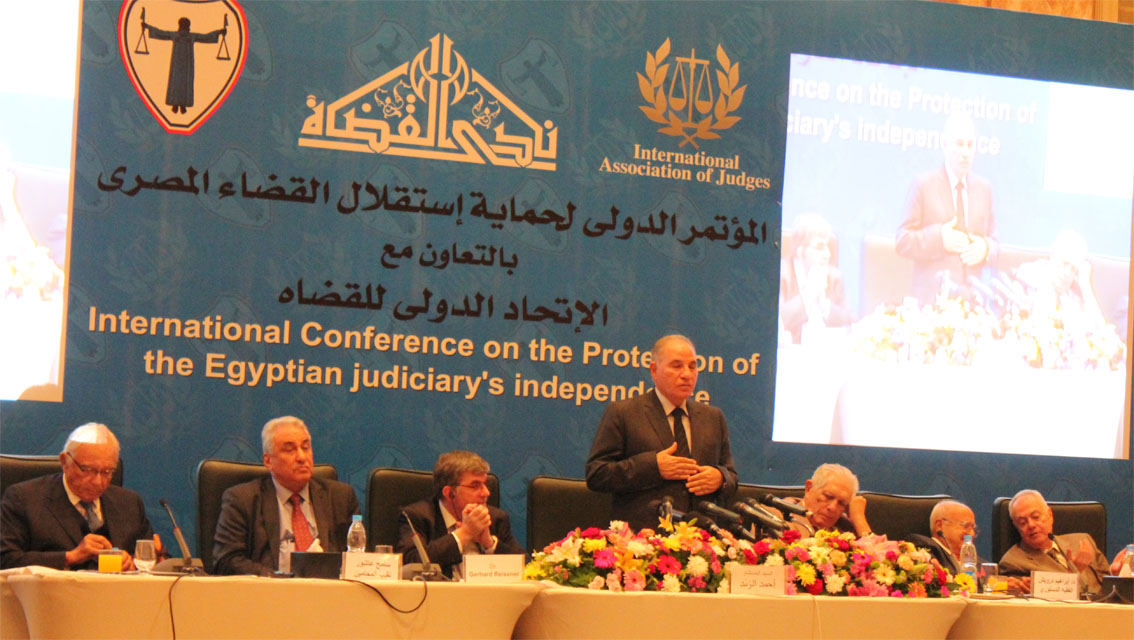CAIRO: The latest attempt by moderate Islamist group Al-Wassat to obtain an official license for their party has fallen short. This is the fourth failed attempt by the group in 10 years to acquire a license, despite optimism from its founder that the group would succeed in their bid.
The Political Parties Court, a semi-governmental body affiliated with the Shura Council, handed down the decision on the basis that it does not legitimize parties with a religious platform.
By definition, parties with a religious platform either call for the rule of clergy, as in Iran, or is a party whose members associate with one religion or sect and deny membership to individuals of other faiths. Al-Wassat’s leader Abul-Ela Madi maintains that this is not the case with his group. “We accept members based on citizenship, Madi told The Daily Star Egypt. “If we haven’t got anyone Christian in our party, it doesn’t mean we are religious. The court’s decision comes after the surprise pullout of seven of the party’s founders, all Coptic Christians. According to Madi, Egyptian authorities pressured the men to withdraw their membership. “They pressured all seven Christians making them leave, he says. “Now after they withdrew, the court is saying that the party is a religious party because everyone is Muslim. They made us go back to square one. “This rejection is neither legitimate nor wise, says Mohammed El-Sayed Said, deputy director of the Al-Ahram Center for Political and Strategic Studies. “I do believe that every party has the right to exist. People have the right to establish their own parties. This particular law is directly opposing constitutional rights. It is not in harmony with international human rights. Prior to their latest fallout with the courts, members of Al-Wassat had been encouraged by recommendations from the State Commissioner’s Authority (SCA) which spoke out last July in favor of granting the party a license. Madi claims that the Political Parties Court is made up not only of judges, but also of members of the ruling National Democratic Party, adding that it is not surprising their latest attempt in court failed. Al-Wassat first applied for official political status in 1996. At that time, the courts rejected them on the basis that there was little to differentiate them from other existing parties. Madi had just defected from the Muslim Brotherhood after 18 years as an active member. He says ever since he left the outlawed group, they have targeted Al-Wassat even more than the government. “The Muslim Brotherhood is afraid of us, he says. “They want to be the only ones to discuss moderate Islam. They still attack us until now … every time they have a chance.
In 1998, its second and third attempts for legalization under the name Egyptian Wassat were rejected, as was an attempt in 2004 as the New Wassat party. Activists and analysts alike are concerned that the unremitting rejection of Al-Wassat will give way to militant groups who feel the Islamic movements are losing ground to bureaucracy. “The Islamist movement has to have a formal organization, Said insists. “The Muslim Brotherhood hasn’t applied for a party [license] and it is not on the agenda. Al-Wassat could have been the wisest choice because it dropped the question of religious nature and spoke of civil party and civil state with a religious reference. It could have enforced moderation within the Islamist movement.
“Of course I was very angry with what happened, says Madi. “Now they closed the road for any democratic change. This will only give way for violent or radical group[s].
